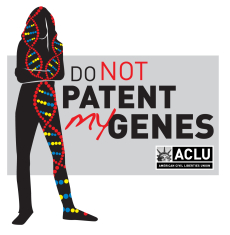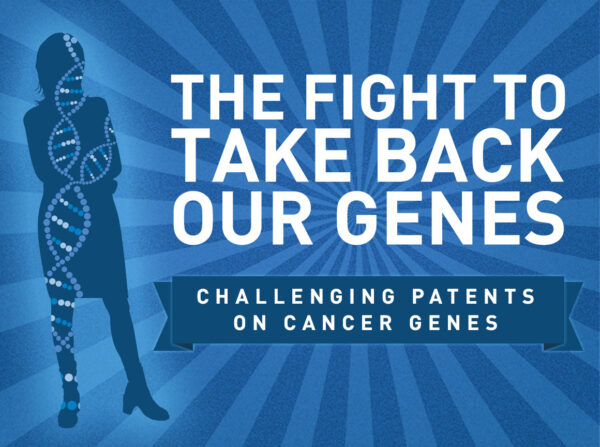U.S. Government Files Brief In РЯАФУХПЊНБНсЙћ And PUBPAT Gene Patenting Case

Government Agrees With Groups That Human Genes Should Not Be Patentable
FOR IMMEDIATE RELEASE
CONTACT: media@aclu.org
NEW YORK т The U.S. government filed a friend-of-the-court brief late Friday in a lawsuit brought by the РЯАФУХПЊНБНсЙћ and the Public Patent Foundation (PUBPAT) challenging patents on human genes. The government agreed with the groups that isolated DNA is not patentable.
The РЯАФУХПЊНБНсЙћ and PUBPAT filed the lawsuit in May 2009 challenging the patents held by Myriad Genetics on the human genes BRCA1 and BRCA2, which are associated with hereditary breast and ovarian cancer. The lawsuit charged that the patents stifle diagnostic testing and research that could lead to cures and that they limit women's options regarding their medical care. A federal court ruled in March 2010 that the patents on BRCA1 and 2 are invalid, and Myriad is appealing that ruling in the U.S. Court of Appeals for the Federal Circuit.
According to the governmentтs brief, тThe chemical structure of native human genes is a product of nature, and it is no less a product of nature when that structure is тisolatedт from its natural environment than are cotton fibers that have been separated from cotton seeds or coal that has been extracted from the earth.т
The following can be attributed to Sandra Park, staff attorney with the РЯАФУХПЊНБНсЙћ Womenтs Rights Project and a lawyer on the case:
тWe are extremely gratified that the government has agreed with us that genes are products of nature and therefore not patentable. Gene patents restrict patientsт access to their own genetic information and chill important research. The lower court correctly found that no one should be able to patent human genes, and we are confident the appeals court will uphold that decision.т
The following can be attributed to Daniel B. Ravicher, Executive Director of PUBPAT and co-counsel in the case:
тThe U.S. brief is a substantial confirmation of our views and Judge Sweet's decision. The impact of the U.S. now taking the position that isolated or purified genetic sequences are indeed not patentable is a substantial boon for society and the biotech industry.т
More information about the case, Association for Molecular Pathology, et al. v. U.S. Patent and Trademark Office, et al., is available online at: www.aclu.org/brca.

